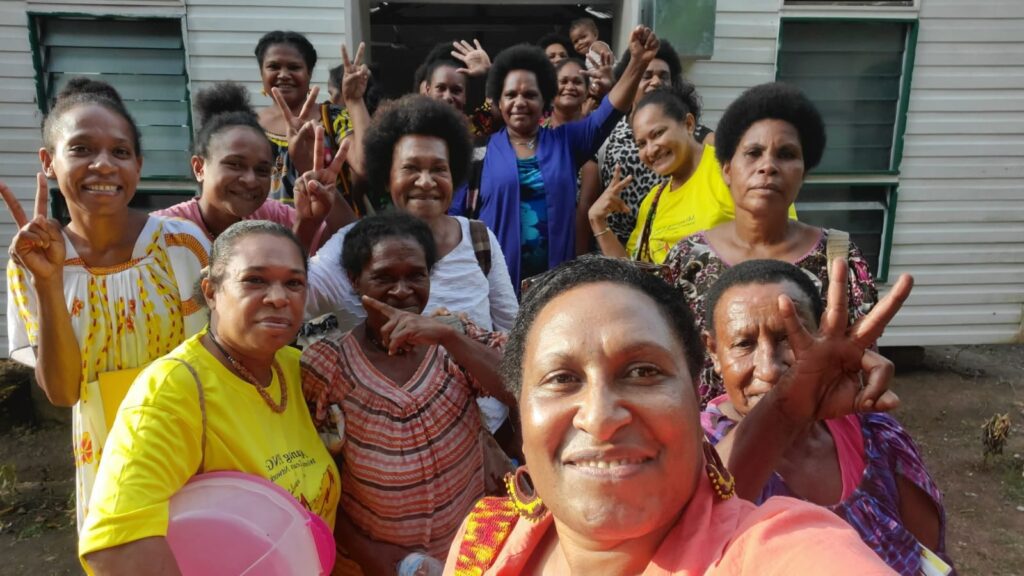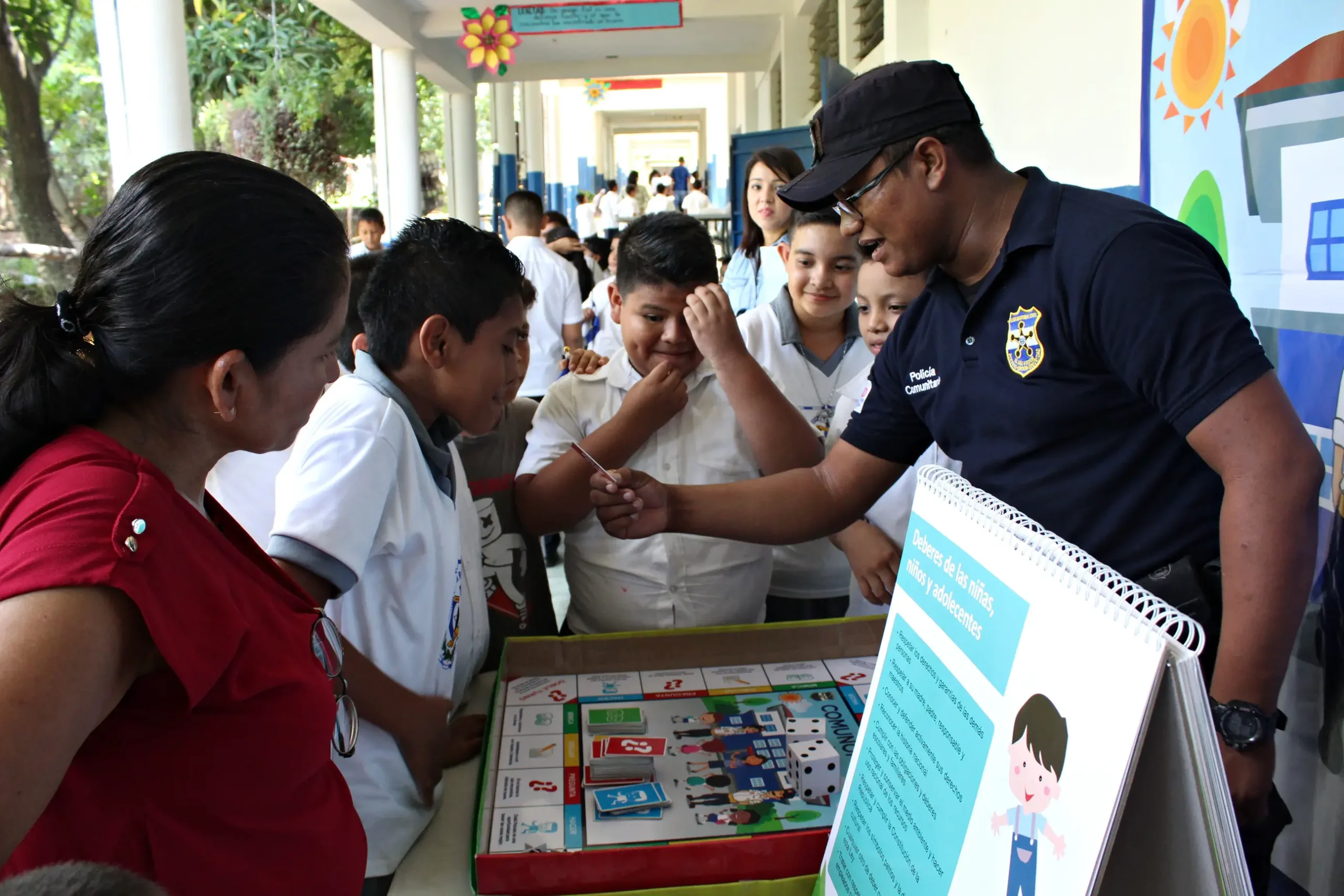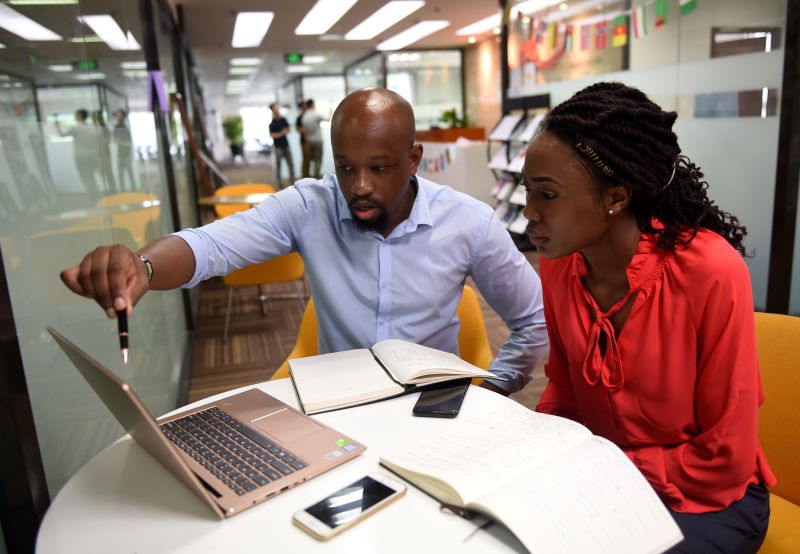An Interview with Ruth Kissam and Cathy Alex of Advancing PNG: Women Leader’s Network
Located in the southwestern Pacific Ocean, Papua New Guinea is a culturally vibrant nation that mixes traditional customs with modern influences. With the opening of a new USAID Country Representative Office in Port Moresby in 2023 and the selection of Papua New Guinea as a priority country for the U.S. Strategy to Prevent Conflict and Promote Stability, the U.S. remains committed to partnering with Papua New Guinea to advance a free and open Indo-Pacific region.
Over the last several years, Papua New Guinea (PNG) has seen an increase in violence and tribal fighting caused by compounding political, social, economic, and environmental factors. Amid growing U.S. interest in promoting peace and stability in PNG, Dexis Senior Advisor Andrew Sinclair interviewed two leading peacebuilders in the country to learn more about the impact locally led efforts can have on communities. Ruth Kissam and Cathy Alex from Advancing PNG: Women Leaders’ Network (APNG:WLN) explained how PNG’s conflicts require locally driven solutions and the importance of using influential local leaders—especially women leaders—on the front lines to mitigate and prevent violence in their communities.
Established in 2014, the Advancing PNG: Women Leaders’ Network (APNG:WLN) began as a way for women to leverage their networks to support one another. The group empowers women leaders and their organizations through capacity building and direct support. Ten years later, APNG:WLN has 68 women leaders representing over 70 different community-based and corporate organizations in PNG.
Ruth Kissam and Cathy Alex from Advancing PNG: Women Leaders’ Network (APNG:WLN) explain how Papua New Guinea’s conflicts require locally driven solutions and influential local leaders—especially women leaders—on the front lines. Photo courtesy of APNG:WLN.
ANDREW: How did you begin working in peacebuilding and mediation efforts?
RUTH: It wasn’t something I set out to do. But I knew if I didn’t do anything, no one would do it for us. You’ve got to be the savior you’re looking for. So that’s what pushed me. I was drawn into this work because I saw there was a need and I had to do something.
CATHY: For me, it was more from my background as an agriculturalist. I saw the power of community mobilizing and supporting small initiatives in rural communities. I now have 20 plus years in this space. I’ve seen what’s possible to empower women and girls and help them provide a source of income for the community. With APNG:WLN, we’ve supported our members’ efforts to bring positive change in their communities.
ANDREW: What’s special about APNG:WLN’s approach?
RUTH: We operate like a community, where people come together for shared activities. The members are the ones who identify the issues in their community and organize themselves to find solutions. The network doesn’t impose solutions but rather it supports the members’ efforts, allowing them to take ownership of the problem-solving process.
This approach makes the network authentic and relatable to community members and organizations. The secretariat of the organization acts as an intermediary, more like a buffer, allowing the network to operate authentically across PNG. If there’s a need for funding, the secretariat meets the donor’s requirements, ensuring the network can continue its work without changing its ways. This way, we can find the solutions that meet the community needs.
ANDREW: Could you discuss the major sources of conflict and violence in PNG and how you have worked to address them to help communities heal and recover?
RUTH: It’s important to understand that conflicts in PNG are highly localized. It could be election-related or inter-tribal fights. I’ve also seen how sexual violence has been weaponized in conflict areas.
In the past, conflicts, especially tribal fights, were more like ceremonial wars. There were unwritten rules of engagement that people adhered to. However, with the introduction of guns, these rules are no longer observed. Conflicts have become more deadly. The sad thing is we don’t have cultural governance that can bring people back to a semblance of a forum or consensus where guns are not part of the equation of reconciliation and peace.
I’ve also seen conflict tied to unequal distribution of government services and economic benefits. There’s a huge gap between people living in rural areas and those in urban centers.
CATHY: Ruth has indeed touched on a crucial point about the unequal distribution of basic services that the government is supposed to provide. People are stepping up to provide these services and help their communities.
Through the work of APNG, we’ve seen women who’ve started or revived medical aid posts that have been closed for about 15 years with just 3,000 kina—less than $800. Now, that revived post is set to become a level six health facility.
We’ve also seen how our work with the Kutubu Council of Women and the Kutubu Council of Youth provides solutions to the youth bulge within the country. In Kutubu, one of the biggest issues is unemployment, especially among young people who find no hope where they are. The education system only admits around 5 to 10% into tertiary institutions, leaving a huge population of young people within the communities without jobs and a sense of focus in life.
Through our work with the Councils, we’ve seen how they’ve mobilized to build a resource center from local materials and convinced their local leaders to step in and provide the finance to turn it into a technical vocational education institute. The institute is funded and officially registered.
We’ve also seen economic employment empowerment activities where women leaders and their organizations are providing marketing avenues for their communities. They’re essentially becoming the channel for the community to create a small economy within their rural areas. Every time they sell their produce at the market, the income comes back into the community and then trickles down to small trade stores and markets for people who are baking within the community. When farmers have money, the families have money.
A lot of our work has helped communities reduce conflicts and address solutions themselves. They’re not waiting for the government but finding the means themselves. And that’s where we see our niche area as a network.
ANDREW: How have international organizations and donors helped advance peace and stability? What’s worked? What could be improved?
RUTH: I’ve noticed that the development sector in PNG has been a priority for many donor countries. We’re extremely grateful for this because the challenges are numerous. It’s a blessing when we have so many well-intentioned friends come to help us. However, it’s also important for our friends to thoroughly understand the issues that PNG faces are complex.
The culture of PNG requires the development sector to prioritize relationship building to fully understand and immerse themselves. People can be distrustful at first. So sometimes they won’t always tell you what the problem is. It can take a year or two just to hear that. But by then, you’re at the end of your program.
Another thing that is happening within the development space is a lack of strong indigenous civil society organizations who can manage aid funding. We’ve seen a lot of big international NGOs popping up to manage programs. And because it is not co-designed, the understanding and the context are not there. It’s just being treated as a project that needs to run its course however long or short the years are, and then that’s it, write the report. And the report can be great, but then you might not have anything on the ground to show for.
Although the challenges are many, I deeply appreciate the work development partners have done. But it now needs a more localized approach.
CATHY: One thing we always hold dear are the individuals who make up the network. Without them, there would be no success stories, no resilient communities. These individuals, whether part of an organization or just someone with the power to convene, are the ones holding this country together. They’re the ones stepping in when there’s no police, no state. They’re the ones communities turn to for assurance, hope, and trust to address any issues they face.
We shouldn’t always be looking at organizations. If there’s anything I’d like to say to donors, it’s to start looking at these individuals who are holding communities together, maintaining peace and harmony.
We deeply appreciate the work donors have done, but it’s time for a more localized approach. We need to focus on supporting the individuals who are truly making a difference in their communities.
ANDREW: What advice do you have for other women peacebuilders?
CATHY: My main goal is to create a safe space where everyone can find their place. Whether it’s an organization, a church, or any platform that I’m leading, as long as it provides a conducive environment as a safe space for everyone, I believe everyone can thrive. It’s about ensuring that everyone feels secure, welcomed, and valued. That’s what I strive for.
RUTH: Women have always been powerful negotiators and community organizers. Even thousands of years ago, when living in communities was a new concept, it was women who ensured that we picked the best places to set up camp for the night or establish villages. Even here in PNG, after a tribal conflict, it’s women who look for a new place to settle.
Without even realizing it, women have had the power for peacebuilding by establishing communities. It’s their signal to men that it’s time to stop fighting, set up a home, establish a community, and regrow.
So, to all the women out there, I want to say this: you carry powers and influence that can change and rebuild communities. Never, ever look down on yourself thinking that you can’t or you’re not able to without the platform of a man.
It doesn’t necessarily have to be from the front. Sons learn from you. Husbands learn from you. Fathers listen to you. These are your superpowers.
This interview has been edited for length and clarity.
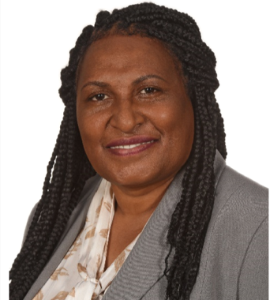
Ruth Kissam-Tindiwi, Board Chair, APNG:WLN
Ruth Kissam-Tindiwi is a seasoned community organizer and human rights advocate with over two decades in the CSO space focusing on cultural governance in combatting Sorcery Accusation related Violence (SARV). She is the Board Chair of Advancing PNG: Women Leaders Network. Her human rights activism in combatting SARV earned her the 2018 Westpac WOW Award. She is an Obama Scholar and currently serves as the Senior Advisor for the United States Institute of Peace (USIP) in Papua New Guinea.
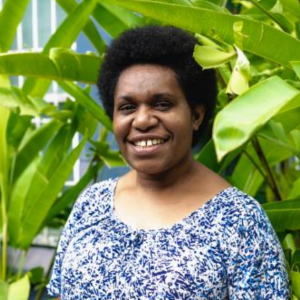
Cathy Alex, Program Manager, APNG:WLN
Cathy Alex is the Program Manager of Advancing PNG: Women Leaders Network Incorporated (APNG:WLN) with extensive experience in community development in rural and semi-rural communities in PNG. Cathy also runs Hauslain Souvenirs, a social enterprise organization promoting eco-friendly traditional handicrafts for the most rural people of Hela, Southern Highlands and Gulf. Cathy has a bachelor's degree focused on Tropical Agriculture from Papua New Guinea University of Natural Resource & Environment.
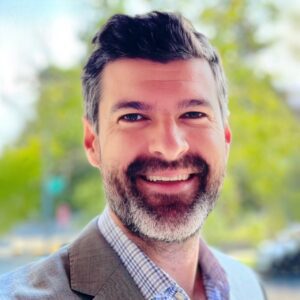
Andrew Sinclair, Senior Technical Advisor, Dexis Consulting Group
Andrew is the Senior Advisor for Dexis’ Center for Global Security and Stabilization, leading strategy and thought leadership across Dexis’ security and foreign assistance portfolios. He brings considerable expertise operating in complex conflict environments with the U.S. government. Before joining Dexis, Andrew served as the USAID/OTI Country Representative for both Libya and Syria. In Afghanistan, he led the Paktya Provincial Reconstruction Team for USAID. Before his federal service, Andrew researched multilateral peace operations at the Center on International Cooperation. Andrew holds a Master of International Affairs from Columbia University and served as a Peace Corps Volunteer in Jordan.
